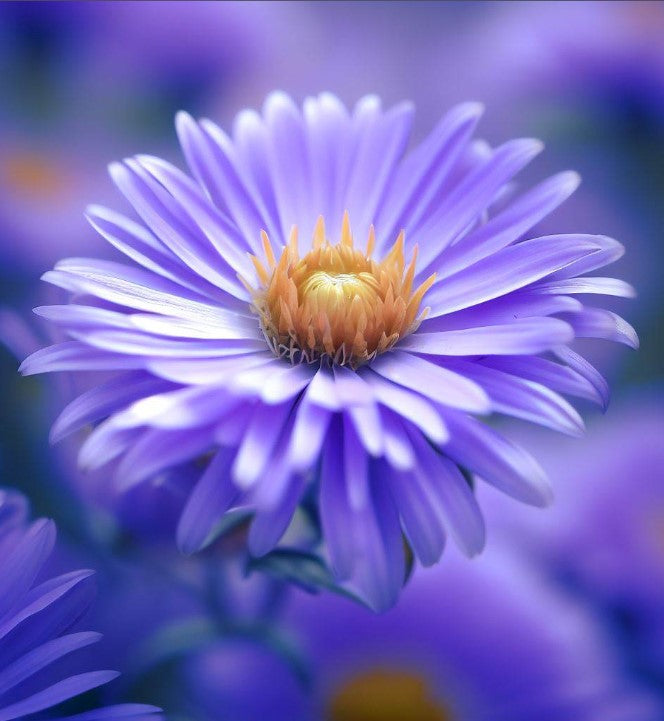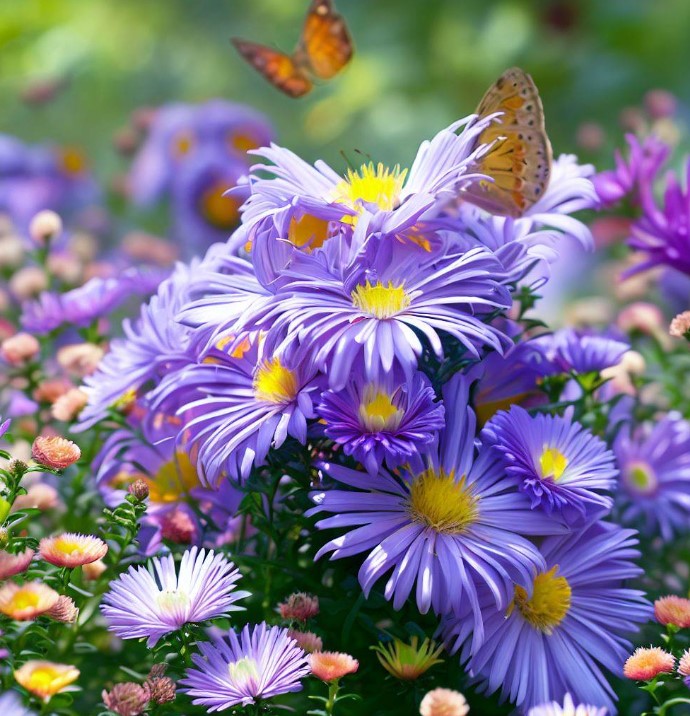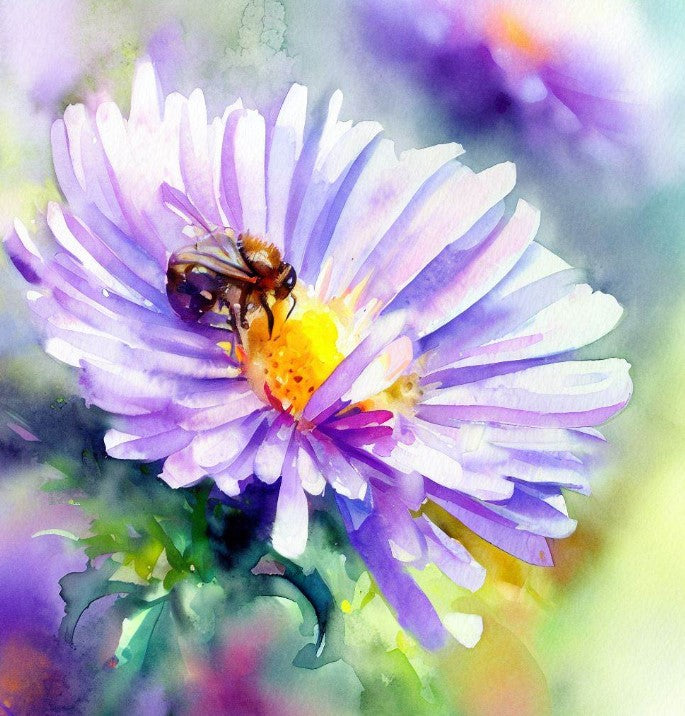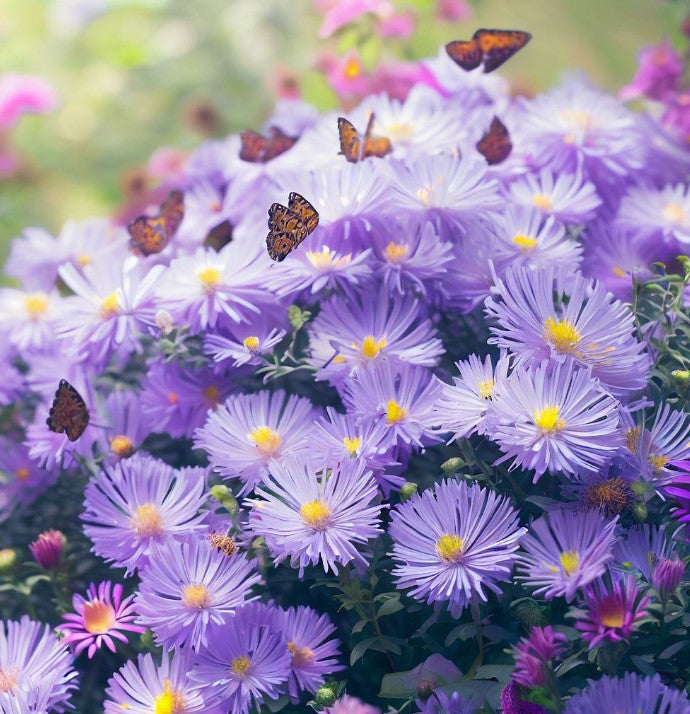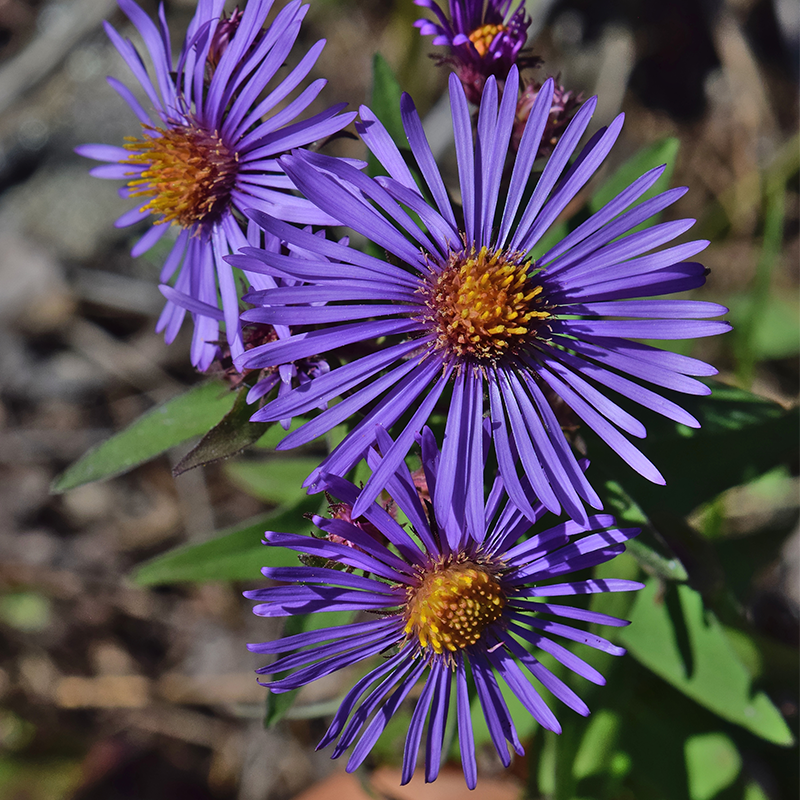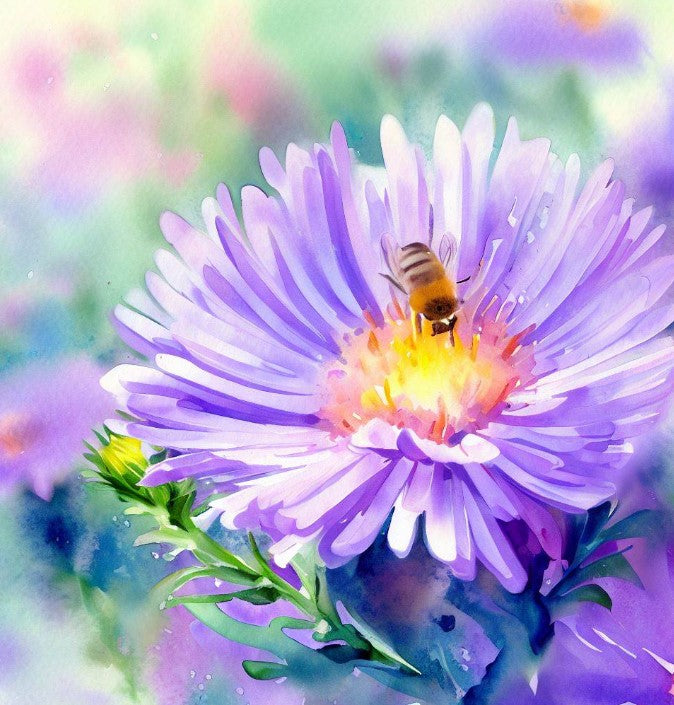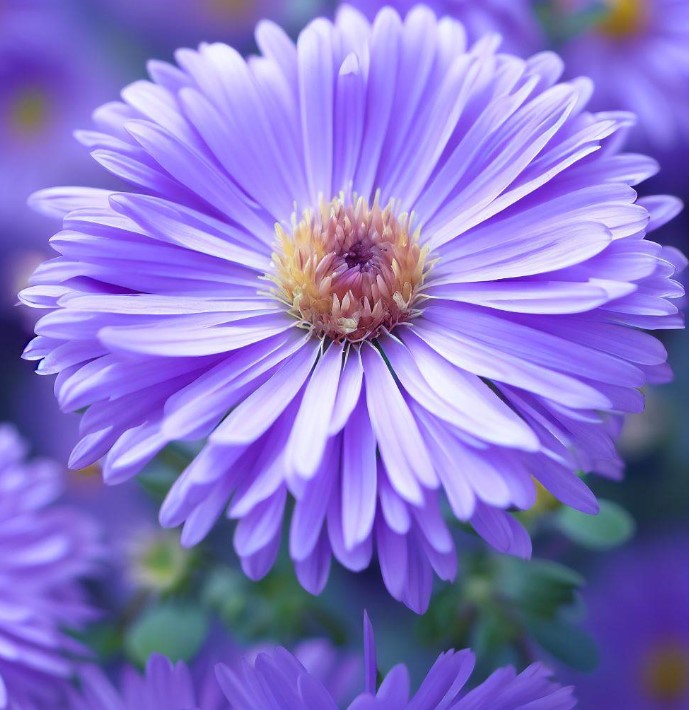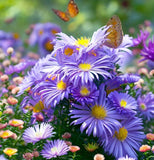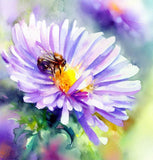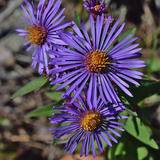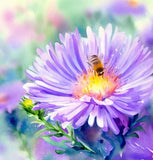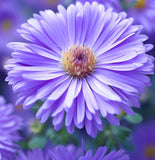ASTER Novae-angliae (SYMPHYOTRICHUM novae-angliae) (New England Aster)
ASTER Novae-angliae (New England Aster) is a species of herbaceous perennial plant native to eastern North America, the exceptional-looking flower with its violet and lavender color can tolerate intense weather conditions. It typically grows up to 2 to 6 feet (0.6 to 1.8 meters) tall and 1 to 3 feet (0.3 to 0.9 meters) wide. The plant has a clumping habit, with numerous sturdy stems that are covered in small hairs.
Aster Novae-Angliae, also known as New England Aster, is one of those jewels that can make the aesthetic look of your garden a center of attention for spectators. Being used for meadows, gardens, beds, etc., New England Aster attracts butterflies, bees, and hummingbirds.
The leaves of New England Aster are lance-shaped and sharply toothed, and are typically 2 to 6 inches (5 to 15 cm) long and 0.5 to 2 inches (1.3 to 5 cm) wide. They are dark green and hairless on top, while the undersides are slightly hairy. The leaves are arranged alternately on the stem.
The flowers of New England Aster are produced in clusters at the end of the stems, with each cluster containing numerous small, daisy-like flowers. The flowers are typically bright pink to purple in color, with yellow centers. They bloom in late summer to early fall, and are an important nectar source for bees, butterflies, and other pollinators.
After the flowers have bloomed, New England Aster produces small, dry fruits called achenes, which are dispersed by the wind. The plant is adaptable to a range of soil types and prefers full sun to partial shade.
New England Aster is commonly used in native plant landscaping and restoration projects, as it is a hardy and attractive plant that provides important habitat and food for wildlife. It is often found in meadows, prairies, and along roadsides. The plant is also used in traditional medicine for various ailments, including respiratory and digestive issues.
| Number of Seeds | Max Coverage Area (Square Ft.) | |
|---|---|---|
| 0.5OZ | 40,625 | 1,000 |
| 1OZ | 81,250 | 2,000 |
| 1/4LB | 325,000 | 8,000 |
| 1/2LB | 650,000 | 16,000 |
| 1LB | 1,300,000 | 32,000 |
| 5LB | 6,500,000 | 160,000 |
Scientific Name: Aster Novae-Angliae
Common Name: New England Aster
Plant Type: Perennials
Family: Asters
Native Range: North America
Full Growth Height: 30-180 cm
Width in Across: 30-90 cm
Exposure: Full, Partial Sun
Blooming Season: Late Summer, Fall
Flower: Cut Flowers, Showy
Pollinators: Sun, Wind, Water
Flower Color: Violet, Lavender
Tolerate: Clay Soil, Deer, Drought, Rabbit, Salt
Water Requirement: Average
Soil Type: Chalk, Clay, Loam, Sand
Zones: 4-8
Uses: Borders Front, Meadows, Gardens, etc.



